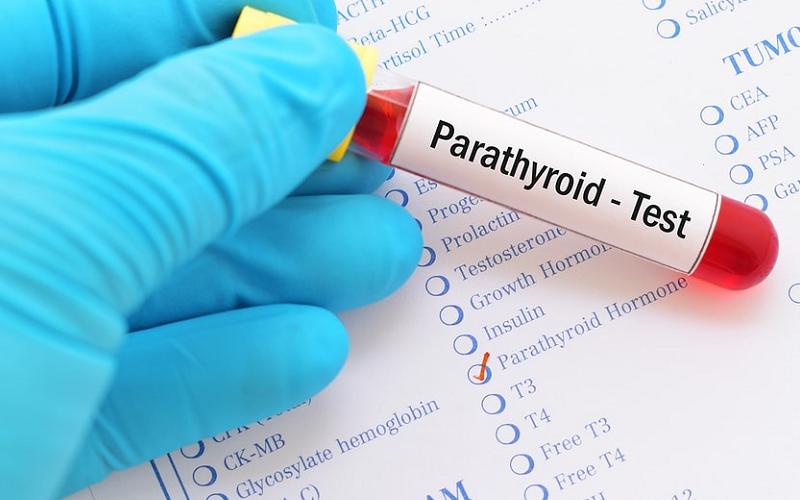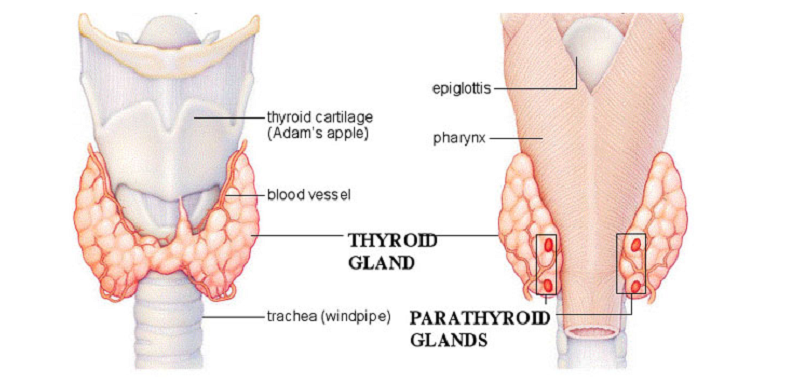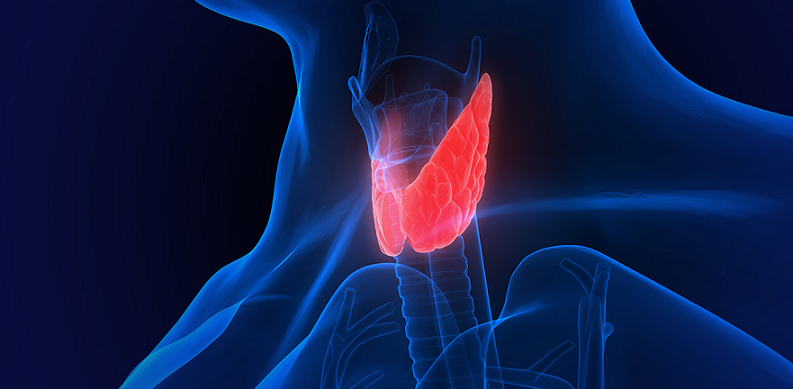
Parathyroid hormone (PTH), a key regulator of calcium levels in our bodies, plays a crucial role in maintaining not only our physical health but also our cognitive well-being. However, when the balance of this vital hormone is disrupted, it can lead to profound implications for brain health and cognitive function. Here we examine the intricate relationship between parathyroid hormone imbalance, specifically conditions like hyperparathyroidism and hypoparathyroidism, and their impact on cognitive abilities. We explore how PTH influences memory, learning, mood, and even the risk of neurodegenerative diseases.
Contents
Understanding Parathyroid Hormone (PTH)
The parathyroid hormone (PTH) plays a pivotal role in regulating various bodily functions, especially those related to calcium and phosphorus balance.
Role and Function of Parathyroid Hormone (PTH)
Parathyroid hormone, secreted by the parathyroid glands located near the thyroid, is a key player in maintaining calcium equilibrium within the body. Its primary function is to regulate calcium levels in the blood. When calcium levels are low, PTH is released to increase the calcium concentration.
It does so by stimulating the release of calcium from bones, increasing calcium absorption in the intestines, and reducing calcium excretion in the urine. This regulation is crucial, as calcium is vital for many bodily functions, including nerve signal transmission and muscle contraction, which indirectly influence cognitive processes.
Production and Regulation of PTH
The production and regulation of PTH are complex processes involving multiple feedback mechanisms. The parathyroid glands respond to low blood calcium levels by increasing parathyroid hormone production. Conversely, when calcium levels are high, PTH secretion is reduced. This regulation is primarily governed by the calcium-sensing receptors in the parathyroid glands. Additionally, vitamin D levels also influence parathyroid hormone production. Adequate vitamin D enhances calcium absorption in the intestines, which can indirectly decrease the need for PTH.
Normal PTH Levels and Their Significance
Normal PTH levels are essential for maintaining calcium balance and ensuring the proper functioning of various physiological systems. The normal range of parathyroid hormone in the blood is typically between 10 to 55 picograms per milliliter (pg/mL), though this can vary slightly depending on the laboratory and testing methods.
Maintaining PTH within this range is crucial for optimal bone health, as chronic imbalances can lead to conditions like osteoporosis. Furthermore, as emerging research suggests, normal PTH levels are important for cognitive health, highlighting the hormone’s broader impact beyond just calcium regulation [1].

Parathyroid Hormone Imbalance: Hyperparathyroidism and Hypoparathyroidism
Parathyroid hormone (PTH) imbalance occurs in two primary forms: hyperparathyroidism, where there is excessive production of PTH, and hypoparathyroidism, characterized by insufficient PTH production. Both conditions can significantly affect cognitive functions and overall health.
Hyperparathyroidism
Hyperparathyroidism is a condition marked by the overproduction of parathyroid hormone. This excess PTH leads to elevated calcium levels in the blood, a condition known as hypercalcemia.
Definition and Causes of Hyperparathyroidism
Primary hyperparathyroidism is often caused by a benign tumor on one of the parathyroid glands, leading to unregulated PTH production. Secondary hyperparathyroidism occurs due to other underlying conditions, like vitamin D deficiency or chronic kidney disease, which cause low calcium levels and stimulate excessive PTH release [2].
Symptoms and Diagnosis of Hyperparathyroidism
Symptoms of hyperparathyroidism can be subtle and include fatigue, muscle weakness, depression, and cognitive impairments such as memory loss and confusion. Diagnosis typically involves blood tests to measure PTH, calcium, and vitamin D levels, and imaging tests to identify any abnormalities in the parathyroid glands.
Effects of Hyperparathyroidism on Cognitive Function
The cognitive implications of hyperparathyroidism are significant. Elevated calcium levels can affect neurotransmitter function and brain health, leading to memory issues, decreased concentration, and in some cases, anxiety and depression.
Hypoparathyroidism
In contrast to hyperparathyroidism, hypoparathyroidism is characterized by insufficient production of PTH, leading to abnormally low calcium levels in the blood, known as hypocalcemia.
Definition and Causes of Hypoparathyroidism
Hypoparathyroidism can be caused by damage or removal of the parathyroid glands during neck surgery, autoimmune disorders, or genetic factors. It results in decreased calcium and increased phosphorus levels in the blood.
Symptoms and Diagnosis of Hypoparathyroidism
Common symptoms include tingling or numbness in the fingers, toes, and lips, muscle cramps, and spasms. Cognitive symptoms may include anxiety, depression, and brain fog. Diagnosis is typically based on low PTH and calcium levels in the blood, along with elevated phosphorus levels [3].
Effects of Hypoparathyroidism on Cognitive Function
The cognitive effects of hypoparathyroidism are due to the low calcium levels, which can disrupt nerve function and neurotransmitter release. This disruption can lead to difficulties in concentration, memory, and can exacerbate mood disorders.

Cognitive Implications of Parathyroid Hormone Imbalance
The imbalance of parathyroid hormone (PTH), whether as hyperparathyroidism or hypoparathyroidism, can have significant effects on cognitive functions.
Impact of Parathyroid Hormone Imbalance on Memory and Learning
PTH imbalance affects calcium levels in the body, which is crucial for nerve function and brain health. In hyperparathyroidism, high calcium levels can disrupt the balance of neurotransmitters, leading to cognitive decline. Patients may experience memory lapses, reduced attention span, and difficulties in processing new information. Conversely, in hypoparathyroidism, low calcium levels can lead to similar cognitive impairments. The insufficient calcium can affect synaptic function in the brain, crucial for memory formation and learning [4].
Effects of Parathyroid Hormone Imbalance on Mood and Mental Health
The relationship between PTH imbalance and mood is complex. Elevated or decreased parathyroid hormone levels can influence the production and function of various neurotransmitters associated with mood regulation, such as serotonin and dopamine. In hyperparathyroidism, patients often report symptoms of depression, anxiety, and irritability.
Similarly, individuals with hypoparathyroidism may experience mood swings, anxiety, and in some cases, depression. These mood disturbances not only affect the quality of life but can also exacerbate cognitive impairments.
Relationship of Parathyroid Hormone Imbalance with Neurodegenerative Diseases
Emerging research suggests a potential link between PTH imbalance and the risk of developing neurodegenerative diseases. Chronic alterations in calcium levels could contribute to neural damage over time, potentially increasing the risk of conditions such as Alzheimer’s disease and other forms of dementia. Although the exact mechanisms are not yet fully understood, understanding the role of parathyroid hormone in brain health could open new avenues for the prevention and treatment of these diseases.
Diagnosing and Managing Parathyroid Hormone Imbalance Imbalance
Accurately diagnosing and effectively managing parathyroid hormone (PTH) imbalance is crucial for mitigating its impact on cognitive health and overall well-being. This section outlines the diagnostic procedures for detecting PTH imbalances and the various treatment options available.
Diagnostic Tests for PTH Levels
Diagnosing PTH imbalance involves a combination of blood tests and imaging studies. Blood tests measure the levels of PTH, calcium, and vitamin D, which are critical in assessing parathyroid function. Elevated or decreased PTH levels, in conjunction with abnormal calcium levels, point towards a parathyroid disorder. Imaging studies like ultrasound, SPECT, and MRI can help identify abnormalities in the parathyroid glands, such as tumors or atrophy, which may contribute to the hormone imbalance.
Treatment Options for Hyperparathyroidism
The treatment for hyperparathyroidism typically depends on the cause and severity of the condition. Surgical removal of the overactive parathyroid gland(s) is often the most effective treatment. For patients who are not suitable candidates for surgery, medications that manage the symptoms and lower calcium levels may be prescribed. Regular monitoring of calcium and PTH levels is also essential to ensure effective management of the condition [5].
Treatment Options for Hypoparathyroidism
Treating hypoparathyroidism primarily involves supplementing the low levels of calcium and vitamin D to maintain normal blood calcium levels. Calcium supplements and active forms of vitamin D are commonly used. Regular monitoring of calcium, phosphorus, and PTH levels is essential to avoid complications and adjust treatment as necessary. In some cases, PTH hormone replacement therapy might be considered.
Lifestyle and Dietary Considerations for Managing PTH
In addition to medical treatments, lifestyle and dietary modifications can play a significant role in managing PTH imbalances. Patients are often advised to follow a diet rich in calcium and low in phosphorus, especially in hypoparathyroidism. Regular exercise, avoiding smoking and excessive alcohol, and maintaining a healthy weight can also contribute to better management of these conditions. It’s important for patients to work closely with their healthcare providers to tailor these recommendations to their individual needs.
References
[1] Secondary Hyperparathyroidism and Cognitive Decline
[2] Parathyroid Hormone, Cognitive Function and Dementia
[3] A Pilot Study of Cognition Among Hypoparathyroid Adults
[4] Age-related increases in parathyroid hormone may be antecedent to both osteoporosis and dementia
[5] Parathyroid Disorders

